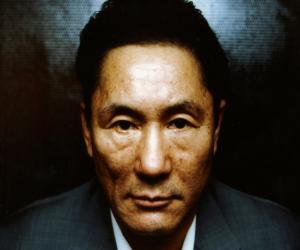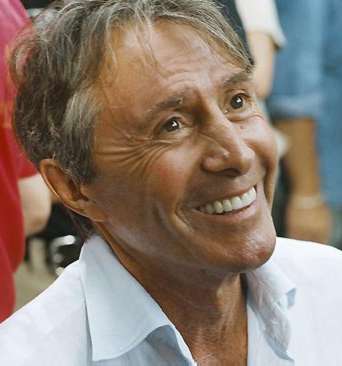Comedy Across Borders
From mediaartiststudio
I wanted to look at comedy films and directors from other countries. I wanted to find out if there were common trends across foreign comedy and our own. I also wanted to find out what foreign comedies were popular in the United States and why.
Contents |
[edit] Importing and Exporting Comedy
Comedy, is considered the most difficult genre of film and television to import or export from country to country. The most obvious of the difficulties is cultural differences, linguistics, and specific cultural references. These traits can’t cross borders unless there’s some sort of understanding as to how these traits are important in the native culture. The United States however, makes almost 50% of its film revenue away from American soil, and comedy does make up a decent portion of that percentage.
Statistically, the US doesn’t import comedy from other countries too often (its lower for example than Action or Period Epics). When American distribution companies do import, the films tend to be more broad in their humor, containing less dialogue and cultural references.
The U.S. has met more success than most other countries when exporting. This is mostly attributed to Hollywood international distributors, pushing films out regularly to foreign countries, and exposing the rest of the world to “American comedy”. In a sense, it has become a form of American colonization. This has however, created popularity in some American comedies.
[edit] Observational Comparison of Comedic Styles
British Comedy: Sarcasm is played up to its fullest (though you are meant to read through the sarcasm). The jokes and humor are at times dry, but not lifeless, just dry in the sense that it requires more active participation from the imagination and wit of the viewer in comparison to American Comedy. The UK seems to play off irony more-so than American Comedy as well. There definitely appears to be a barrier for American audiences when sarcasm and irony are played up.
Japanese Comedy: Physical comedy seems to play an important role. Usually supplied by a setup of some sort, to cause the physical interaction. Popular Japanese comedies tend also to deal with social awkwardness, surrealism, satire, linguistic ambiguity, and puns. At times, Japanese comedy at times tends to be more translatable to American audiences even when dialogue heavy. This is partially due to the heavy western influence on Japanese culture, and growing popularity of very "Americanized" themes and motifs by many predominant Japanese comedic film directors. Japanese comedy only really loses clarity in translation, when dealing with specific cultural differences.
French Comedy: The French comedic style seems to have a way with words. There most often contains innuendo, double entendre, sarcasm, and self deprecation within a stereotypically "French" comedy. They also enjoy a healthy amount of slapstick, farce, and mockery of their political leaders, much to the similarity of American comedy. The main difference would be cultural references in the world play, as well as the up-played sarcasm. On an interesting note, the French culture tends to take its comedies seriously, as it is considered to be the "IT" genre. A new comedy in France (especially if it has Gerrard Depardiu or Jean Reno in the cast) is anticipated much like our "power dramas" in the U.S. are.
Korean Comedy: Korean comedy has difficulty crossing over to the U.S. because its main focus is usually errors in social context, in comparison to the social norm. Audiences with little understanding of Korean culture, may have a harder time understanding what the comedic situations taking place actually mean. Korean comedy does also tend to include slapstick, stemming from their more traditional slapstick theater. There is also a strong western influence, spawning daytime soaps and sitcoms, but are rarely if ever, exported from the country.
Indian Comedy: Indian comedy faces the same challenges when exported to the U.S. as many of the other foreign countries. Much of Indian comedy deals directly with cultural references and the breaking of cultural taboos. Indian comedies also rely heavily on slapstick, parody and risqué humor. Unlike comedy common to Europe and the U.S. there tends to be little to no comedy targeting the caste system, bureaucracy, or politics.
[edit] Directors Bios
[edit] Takeshi Kitano (alias: Beat Takeshi)
Takeshi Kitano, also known as Beat Takeshi, is a director, screenwriter, actor, comedian, editor, poet, painter from Japan. He is also a professor at the Tokyo University of Art. Kitano is known for his use of long takes, with little action, or cutting directly to the aftermath of the event. (as seen in Kikujiro) Many of his films express a bleak or nihilistic philosophy, but they are also filled with a great deal of humor and affection for their characters. Kitano's films paradoxically seem to leave controversial impressions. While formally disguised as dark comedies or gangster movies, his films raise moral questions and provide food for thought.
Directing Filmograhpy
1989 Violent Cop
1990 Boiling Point
1991 A Scene at the Sea
1993 Sonatine
1995 Getting Any?
1996 Kids Return
1997 Hana-bi
1999 Kikujiro
2000 Brother
2002 Dolls
2003 Zatōichi
2005 Takeshis
2007 Glory to the Filmmaker!
2008 Achilles and the Tortoise
Kitano Great Directors Article
[edit] Francis Veber
Son of writers, Verber originally made his way as a journalist, until eventually he focused more on writing sketch comedies and plays. He is famous for his farces of the 1970's. His first screenplay was for Pierre Mondy's Appellez-Moi Mathilde, a 1970 crime film. Veber had his first major success with his screenplay for Yves Robert's Le Grand Blond Avec Une Chassure Noire, an extremely popular comedy of errors revolving around mistaken identity. Veber went on to do steady work throughout the decade, enjoying particular success for his collaborations with director Edouard Molinaro, which included L'Emmerdeur and the internationally acclaimed farce La Cage Aux Folles, for which Veber earned a Best Adapted Screenplay Oscar nomination.
Directing Filmography
1976 Le Jouet
1981 La Chèvre
1983 Les Compères
1986 Les Fugitifs
1989 Three Fugitives
1992 Out on a Limb
1996 Le Jaguar
1997 Le Dîner de cons
2000 Le Placard
2002 Tais-toi!
2006 La Doublure
[edit] Edgar Wright
Wright started directing his own films at the age of 14, while attending The Blue School, in Somerset, Wells. At the age of 20, he met success with his spoof western A Fistful of Fingers. He then began work for a number of TV comedies The Paramount Comedy channel and the BBC, including Stately Homes and Asylum, during the production of which he met writer-actors Simon Pegg and Jessica Hynes. In 1999 he joined Pegg and Hynes to create Spaced for Channel 4. Wright is responsible for the unique cinematography with dramatic camera angles and movement borrowed from the visual aesthetics of science fiction and horror films. Wright is also famous for the "Homage-O-Meter" which directly references which films he is "borrowing" from or paying homage to.
Directing Filmography
1993 Dead Right
1994 A Fistful of Fingers
2004 Shaun of the Dead
2007 Hot Fuzz
2007 Don't (Mock Trailer)
[edit] Quick Links
Amazing list of International Comedy
Return to Title -> Finding Funny: Comedy and Genre Studies



